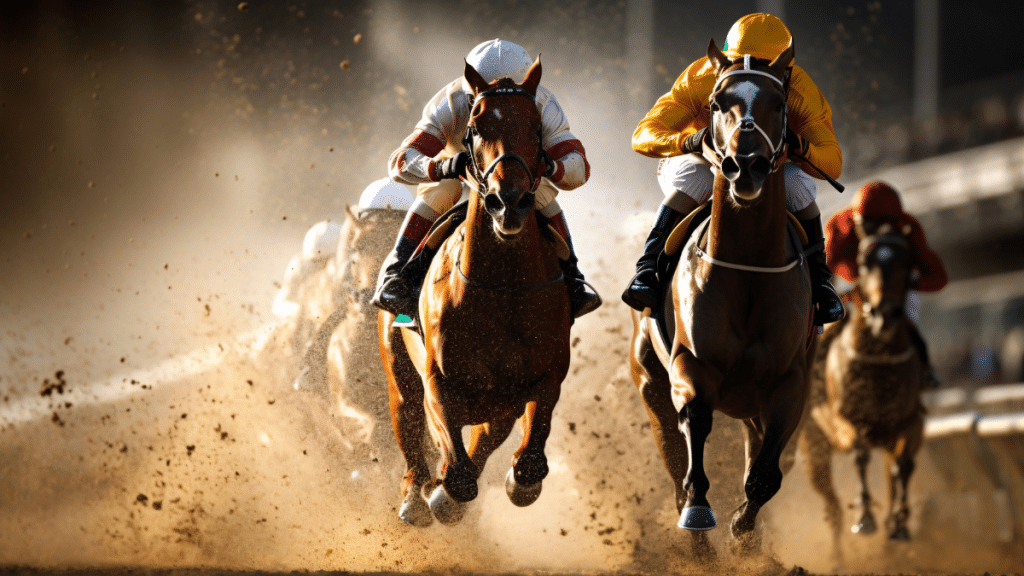Most assume that the horse racing industry is still stuck in the 1970s, but the truth is, this is one of the fastest advancing sports in the world at least when it comes to technological advancements.
Yes, the sport looks and feels the same as it did a few decades ago, but that’s because it is heavily tied to traditions. If you peel the first layer, you’ll find out that the horse racing industry is full of technology.
With artificial intelligence being one of the biggest trends at the moment, it is not surprising that we find AI traces in the Sport of Kings. But these are not just small technological advancements. We are talking about technologies that are changing the sport in many different ways.
It kind of makes sense. Horse racing has always been a sport centered around data, which is why machine learning, data science, and AI work are in sync.
Let’s find out all the ways AI is impacting the horse racing industry.
AI in Breeding
Most people, when they think of AI in horse racing, immediately go to user experience and betting. However, AI can have a much deeper impact and even change the way we breed horses.
When you look at breeding, most true horse racing fans would know that we haven’t advanced much for decades. After all, Secretariat (a horse from 1973) still holds the records in events like the Kentucky Derby.
So, why can’t we make a faster horse than the Secretariat, even with all the technological advancements? Well, maybe AI is the solution. Breeding racehorses has been part art, part science, and a whole lot of guesswork. That’s why it is so unreliable.
You match a stallion with a promising pedigree to a mare with a strong race record, cross your fingers, and hope to get a fast horse. But in most cases, the foals are not as fast.
But AI is taking the guesswork out of genetics. Can you imagine having a massive database of all the DNA factors that make a great racehorse? Then AI can be used to maximize breeding efficiency and make sure that the newly born horse has the potential to become something great in the horse racing industry.
Breeding programs now use machine learning to:
● Identify optimal mating pairs
● Predict the probability of certain physical traits
● Minimize risk of inherited conditions
● Forecast race potential years before the first gallop
In short, AI is helping breeders produce faster, stronger, and more resilient horses, which is great for the sport (but terrifying if you’re a rival trainer).
Smarter Bets, Sharper Punters
The days when you relied solely on horse racing instinct and that unexplainable gut feeling when picking a winning horse are now gone. Horse racing betting is all about observing the data, and the answers can be found in the smallest details.
The only issue is that the sport holds huge data points, making it impossible to observe it all with our naked human eye. But AI can help analyze huge piles of data and find possible patterns that might predict the winner of an upcoming race.
The only thing left for you to do is learn what horse racing odds mean and how to place a bet. If you are a newcomer to the world of horse racing betting, check out this guide by TwinSpires:
twinspires.com/betting-guides/what-do-horse-racing-odds-mean/
Training Gets a Digital Upgrade
Trainers used to rely on a keen eye and gut feeling. Now they’re working with wearable tech, GPS trackers, and motion sensors to monitor everything from a horse’s gait to its oxygen intake.
This isn’t just about preventing injury (although that’s a huge part of it). It’s also about optimizing performance. Imagine a dashboard where a trainer can track:
● How efficiently a horse is running
● How quickly it recovers from sprints
● How it reacts to different surfaces or temperatures
AI then takes that data and translates it into actionable training insights. Maybe a certain horse runs best in the afternoon. Maybe it performs better after two rest days instead of three. The algorithms pick up on patterns no human could ever notice.
Integrity and Safety
Sadly, the racing industry has faced criticism over horse welfare and ethical concerns. This is where AI could become a hero.
Some racing jurisdictions are now using AI to predict breakdowns before they happen. This is already a thing at big racetracks like Churchill Downs.
By analyzing historical injury data, limb stress, stride abnormalities, and training intensity, algorithms can flag horses at high risk for injury. That gives vets and trainers a chance to intervene early, or rest the horse entirely.
And it’s not just about the horses. AI is also helping detect suspicious betting patterns, performance-enhancing drugs, and jockey behavior that might raise eyebrows. Integrity matters, and the algorithms are watching.
Will AI Replace the Romance?
Now, some purists might grumble. “What about instinct? What about tradition?” And fair enough, there’s something beautifully chaotic about a long shot upsetting the odds or an underdog trainer winning big.
But AI isn’t replacing the magic of horse racing. It’s enhancing it.
We’re not losing the thunder of hooves or the thrill of photo finishes. We’re just adding a layer of smart, precise decision-making underneath it all. It’s still a game of heart and hustle, but now there’s a brain behind the curtain, running calculations while we cheer in our fascinators and fedoras.
So, AI brought some big changes to the horse racing industry, despite its century-old roots. This means that we all should get prepared for some big changes that are coming to the sport.
